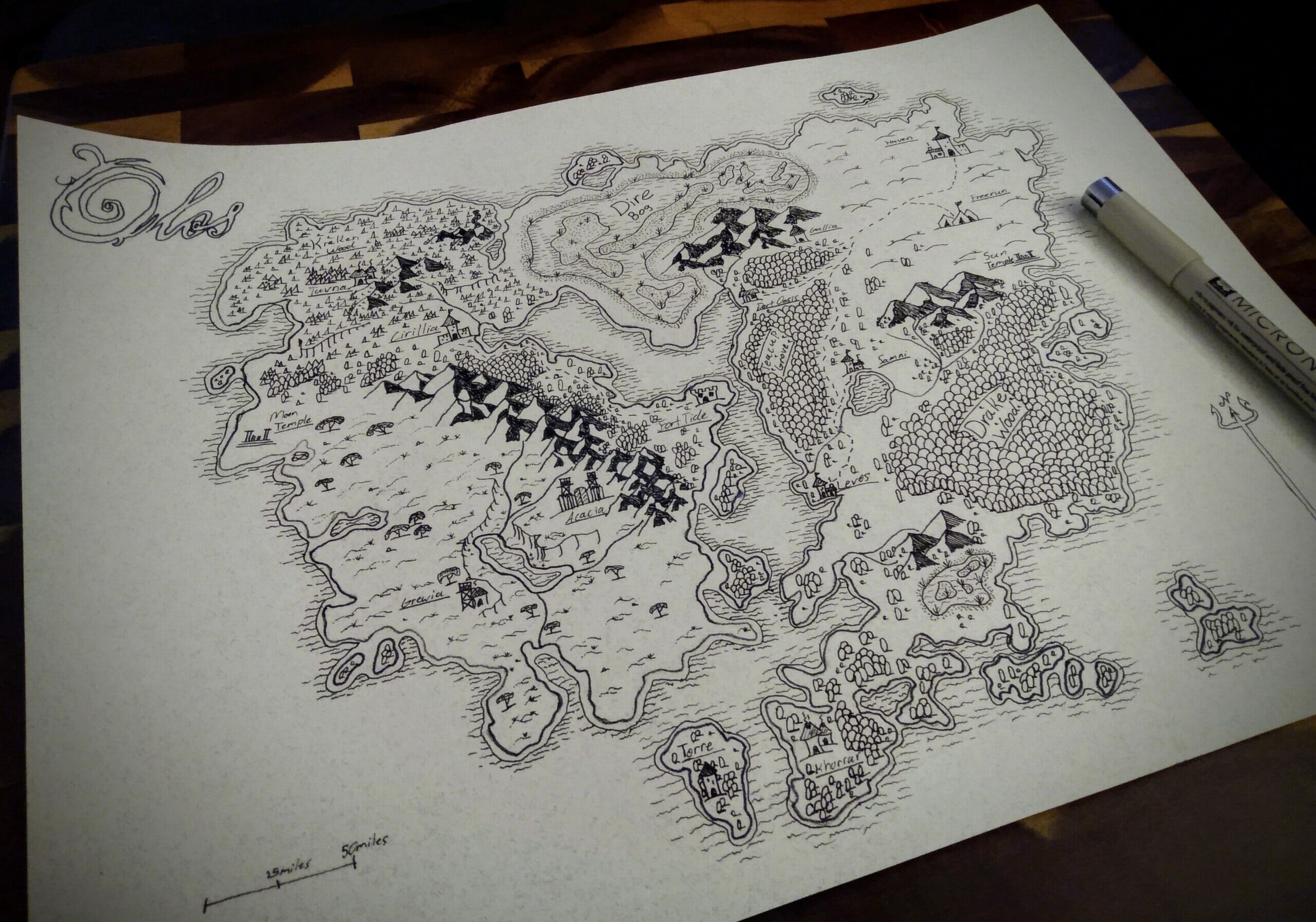So you’ve written a book. Congratulations! The hard part is over, right?
Sort of. There’s a little more brainstorming to do before you send your book into the wild. Now, you need to figure out how to write a book title that captivates would-be readers and gets them to pick up your book.
Or, maybe you’ve just decided to write a book and want to start with a book title for inspiration. It’s always a good idea to have at least a working title before embarking on your first rough draft.
Keep reading to learn how to write a book title that gets all the right attention – and get your hands on our favorite free tool for generating hundreds of great book titles instantly!
The fail-proof formula for creating book titles
There’s no one-size-fits-all way for how to title your book. But we do have a formula you can use as an excellent jumping-off point!
Before we dive into the specifics, bear in mind that the best title for your book is the one that nails your book positioning and, ultimately, gets the most sales. So, if you’ve found a title that deviates from this formula but is skyrocketing sales—that’s totally fine! Let this serve as inspiration rather than a rigid guideline.
Step 1: Remember your audience
Chances are you identified your core audience long before you started writing your book. Similarly, keep it in mind as you write your book title and subtitle.
It should appeal to whomever you’re selling to and be appropriate. For example, the process of figuring out how to write a book title for a YA fiction novel would look very different than a steamy fantasy romance read.
Step 2: Determine the key themes and concepts in your book
It’s simple: you need to start by knowing what you’re selling.
Now, you might not be overtly selling something in your book – especially if it’s a fiction novel. But yet you are. It could be an escape from life (fantasy, sci-fi), an ideology or a lesson, a character, a mind-boggling mystery, or a couple of jumpscares.
Make a list of the key themes in your book, what it will teach your readers (or how it will entertain them), the names of key characters, and anything else that feels relevant.
This information should guide the creation of your title.
Step 3: Brainstorm keywords and key phrases
It’s important to include the terms your readers are searching for when writing your book description. However, the rules don’t necessarily apply when thinking about how to write book titles.
Once you have your list from step one prepared, distill it into a handful of keywords and phrases that reflect what your book is about and the purpose it serves.
Writing a self-help book? Examples might be Transform Your Life with Meditation or Use Timeblocking to Unlock Your Full Potential.
Compare those more descriptive self-help titles with a few of the memoir examples we’ve compiled, like Walden or My Mother’s Daughter.
Step 4: Incorporate emotion and intrigue
At the end of the day, humans are emotional beings. So, if you want to sell your book, you’ve got to appeal to their feelings.
Use the keywords and concepts you ideated in steps one and two to help you identify what your book will make your readers feel. Is it relief? Stress-reduction? Inspiration? Make note of it.
Step 4: Start brainstorming
Just as the first draft of your book was messy, your book title brainstorming process will be, too. That’s okay! The point is to get your ideas on paper (or screen). Using the keywords, emotions, and concepts you’ve identified in the above steps, start listing potential titles.
Focus on creating something that’s as concise as possible while still grabbing your reader’s attention. There aren’t too many rules for learning how to write book titles, but if you’re writing a genre that tends to have a specific title structure, you might use that for reference.
For example, many cozy mysteries use a “[noun] and [noun]” approach, like Biscuits and Blackmail.
Step 5: Test your book title and ask for feedback
Once you’ve narrowed your brainstormed ideas down to about ten potential book titles, it’s time to start getting feedback.
Ask as many people as you can not only their thoughts on your titles but also what they assume the book is about. You want to understand what they think they’ll get out of it based on the name.
Be sure to ask if there’s anything they find confusing, offensive, or otherwise off-putting about the book titles you’ve written too.
Step 6: Make sure your chosen title is unique
Once you’ve narrowed down your best titles based on feedback, it’s time to start searching.
Review booksellers, blog posts, articles, and more to ensure your book title (or something very similar) isn’t already being used by another author. If it’s not, you’re good to go!
How to write book titles for Amazon
Nearly all of the authors we work with choose to self-publish on Amazon. And for good reason. Amazon sells millions of books each year. But to be a part of the top authors on the platform, it’s vital to learn how to write book titles that make yours stand out.
Following our formula above, start by being descriptive. Your readers should have a good idea of what they’ll get out of your book just from reading the title. If they have to guess at the book genre or subject matter, your title isn’t ready yet.
You may also want to highlight your book’s USP or unique selling point. If it’s a self-help book, what is it teaching folks how to do? If it’s fictional, why is it more compelling than the other novels on Amazon? Let us know in the title.
Next, think about keywords people who are looking for your book might search for. If they’d like to learn how to become a better leader as an introvert, words like “leader” and “introvert” should be in your title.
Finally, you get bonus points for creating a sense of intrigue and evoking strong emotion in the reader—that’s how you get them to click “buy!”
As a reminder, before listing your book on Amazon, do a search to make sure there isn’t a book already selling with a similar name.
How to write a book title for a book review
If you’re writing for a book review, start by listing the book’s full title and the author’s name. While you want to keep the title of the book concise, it can be helpful to add a very brief blurb with some context about the book.
An example might be: Review: ‘The Great Gatsby’ by F. Scott Fitzgerald – A Glimpse Into Roaring Twenties Society or and example from our own blog, I’m Glad My Mom Died: A Review of the Unflinching Jennette McCurdy Memoir
How to write a book title for your author website
Much like writing a book title for Amazon, you want the book title you write for your author website to be engaging and give readers an idea of what the book is about.
Even though you aren’t competing against millions of other book titles on your own website, you still want to ensure your book title is reflective of your author brand and the image you want to convey. Make sure you know who your target audience is, and write a book title that appeals to what they’re looking for.
If you thought you could get away with skipping keywords in your title here, you’d be mistaken. This is an excellent opportunity to leverage search engine optimization, which means getting more eyes on your book.
So think about what your (potential) readers might be searching for—a solution for procrastination? A fluffy romance novel where nothing bad happens?—and make sure you’re using those keywords in your title.
A quick note here: Once you experiment with how to write book titles for your genre and settle on one for your book, that title will stay the same everywhere. You don’t want to confuse readers by using one book title on your Amazon listing and another slightly different one on your website. We’re just giving you ideas of the different places you’ll be using your book title and different things to keep in mind for each.
How to use a book title generator
Need a little more assistance learning and practicing how to write book titles? We’re here to help. As leaders in the self-publishing world, we’ve coached thousands of people through the process of writing and publishing books that become bestsellers.
And we know a thing or two about a good title. We’ve also got the inside scoop on how to subtitle a book people will actually buy.
To make this process that much easier for you, we’ve created a completely free book title generator that helps you come up with a working title for your work. Whether you’re writing fiction, nonfiction, or children’s books, it will use specific prompts to generate a title that is unique and interesting.
What’s a working title, you ask? It’s a “placeholder” or draft of your book title. It’s subject to change (and often will), but it helps you zero in on the key points you want in your final book title. For many, it’s also the inspiration for beginning their draft. Having a book title at the top of your page feels like progress – and it is!
While it may not be the exact title that goes out on your published book, it’s an excellent jumping-off point to assist you in the brainstorming, book outlining, writing, and editing processes.
To use the book title generator, you simply input the genre of your book and a description of what it’s about. The more details, the better. The generator will do the rest!
If you’re working on an autobiography, fantasy, or horror book and find yourself in need of extra inspiration for the ideal title, we’ve got you covered with these tailored tips:
- 50 Eye-Catching Autobiography Titles
- Fantasy Book Name Generator: 100s of Title Ideas
- Create Terrifying Titles: Free Horror Book Title Generator
Some folks find brainstorming and thinking about how to title their book to be great fun. Others think it’s daunting.
Wherever you land on the spectrum, know that you have a lot of help available as you find a title that helps your book sell. If you find you need more guidance, schedule a book consultation today. We can’t wait to meet you!

























